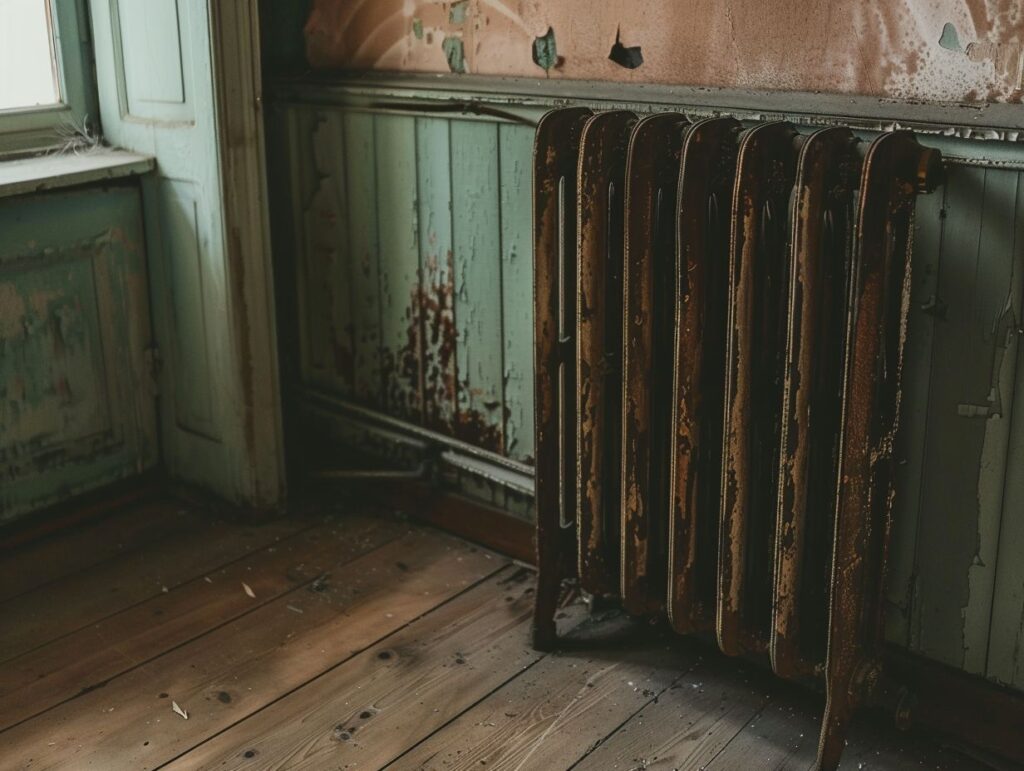Traditional radiators are a common feature in many homes, providing essential heat during the colder months. In this guide, you will explore the different types of traditional radiators available and the maintenance requirements necessary to keep them running efficiently.
From regular cleaning and inspections to addressing common issues, tips will be provided for extending the lifespan of your traditional radiators. Additionally, we will discuss when it is necessary to call a professional for maintenance and the signs of serious issues to look out for.
By learning more about how to properly care for your traditional radiators, you can ensure they continue to operate effectively.
Key Takeaways:
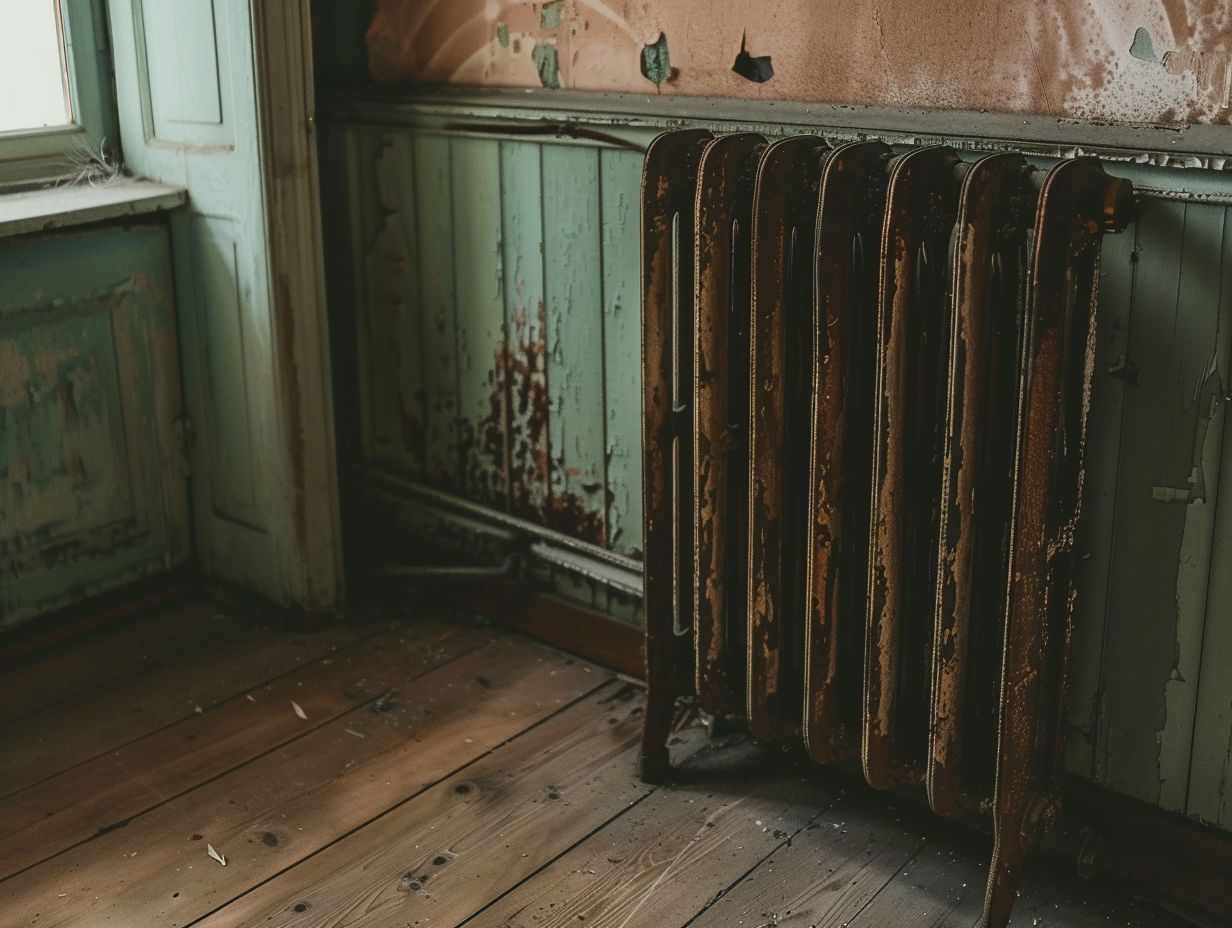
- Regular cleaning and inspections are necessary for maintaining traditional radiators.
- Addressing common issues such as leaks and rust can prevent serious damage and prolong the lifespan of traditional radiators.
- Knowing when to call a professional for maintenance can help catch serious issues before they escalate and potentially save money in the long run.
Maintenance Requirements for Traditional Radiators
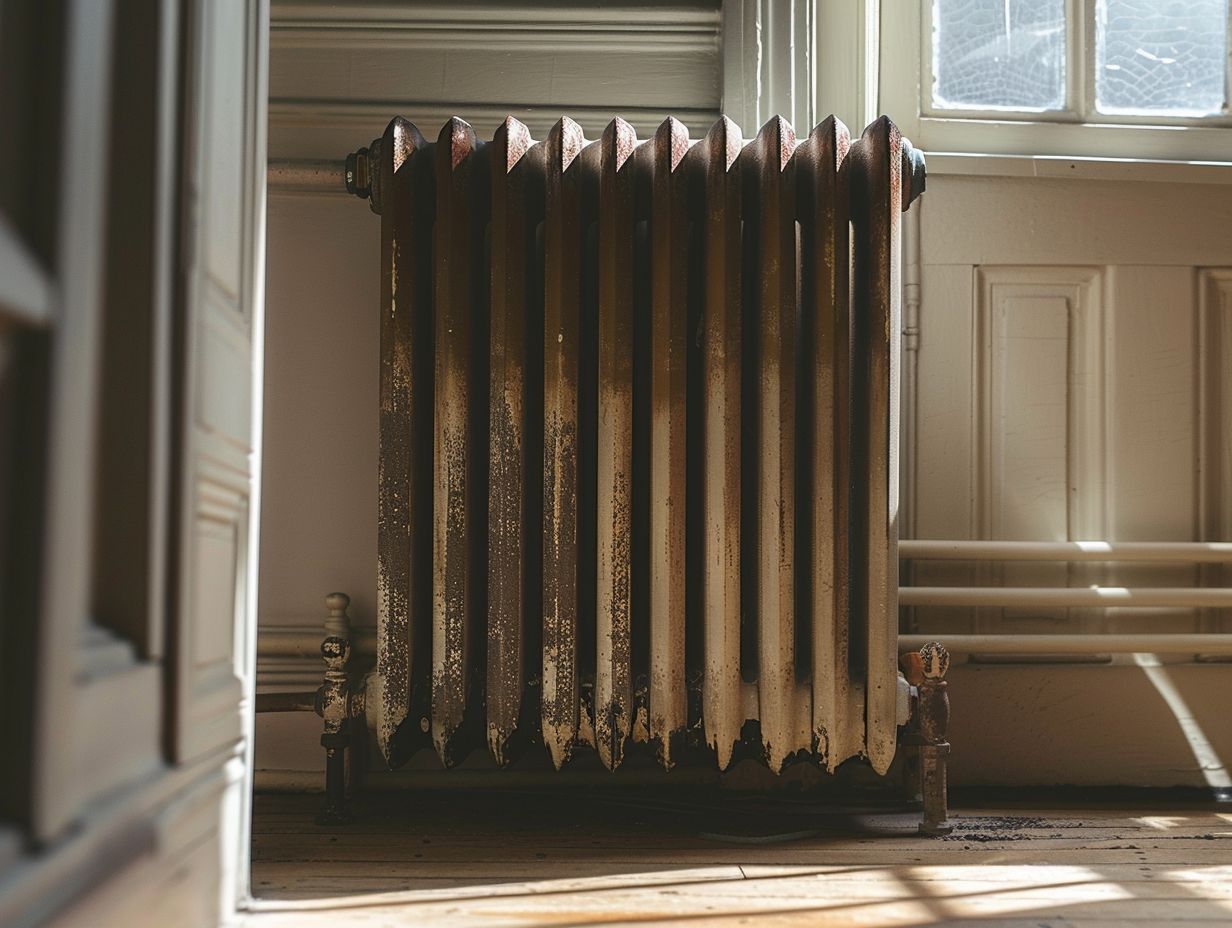
For optimal performance and longevity of your traditional radiators, it is crucial to prioritize proper maintenance. Ensure regular cleaning and utilise chemical inhibitors to prevent corrosion and uphold the efficiency of your heating system.
Regular Cleaning and Inspections
To maintain traditional radiators in optimal condition, it is crucial for you to prioritise regular cleaning and inspections. This maintenance routine plays a vital role in preventing the accumulation of sludge, corrosion, and other issues that could potentially impact the performance of your heating system.
When performing the cleaning process, the initial step involves draining the radiator to eliminate any existing water, as well as any sludge and debris that may have built up inside.
Once the radiator has been drained, it is important to thoroughly inspect it for any indications of leaks or damage, such as rust spots or corrosion. Additionally, it is essential to check each radiator valve to ensure proper functionality and confirm that water can circulate efficiently throughout the system.
By consistently conducting these comprehensive inspections, you can not only prevent breakdowns but also enhance the overall energy efficiency of your heating system.
Addressing Common Issues
Common maintenance issues with traditional radiators include rust formation, especially in iron radiators. It is important for you to check valves and connections regularly to address leaks and ensure proper heat distribution.
To prevent rust formation, experts recommend bleeding the radiators annually to remove trapped air that can lead to corrosion. Valve malfunctions are often caused by trapped debris, which can be fixed by flushing the system or replacing the faulty valve.
Leaks can be sealed using radiator sealant or by tightening loose connections. Regularly inspecting the entire system for any signs of wear and tear can help you in early detection and prompt maintenance, preventing costly repairs down the line.
Tips for Extending the Lifespan of Traditional Radiators
To maximise the lifespan of traditional radiators, you must prioritise regular maintenance and efficient heat distribution. It is essential to keep the radiators clean, adjust heating settings according to external temperatures, and ensure optimal airflow around the radiators. These practices will all play a significant role in extending the longevity of your traditional radiators.
Preventive Measures and Best Practices
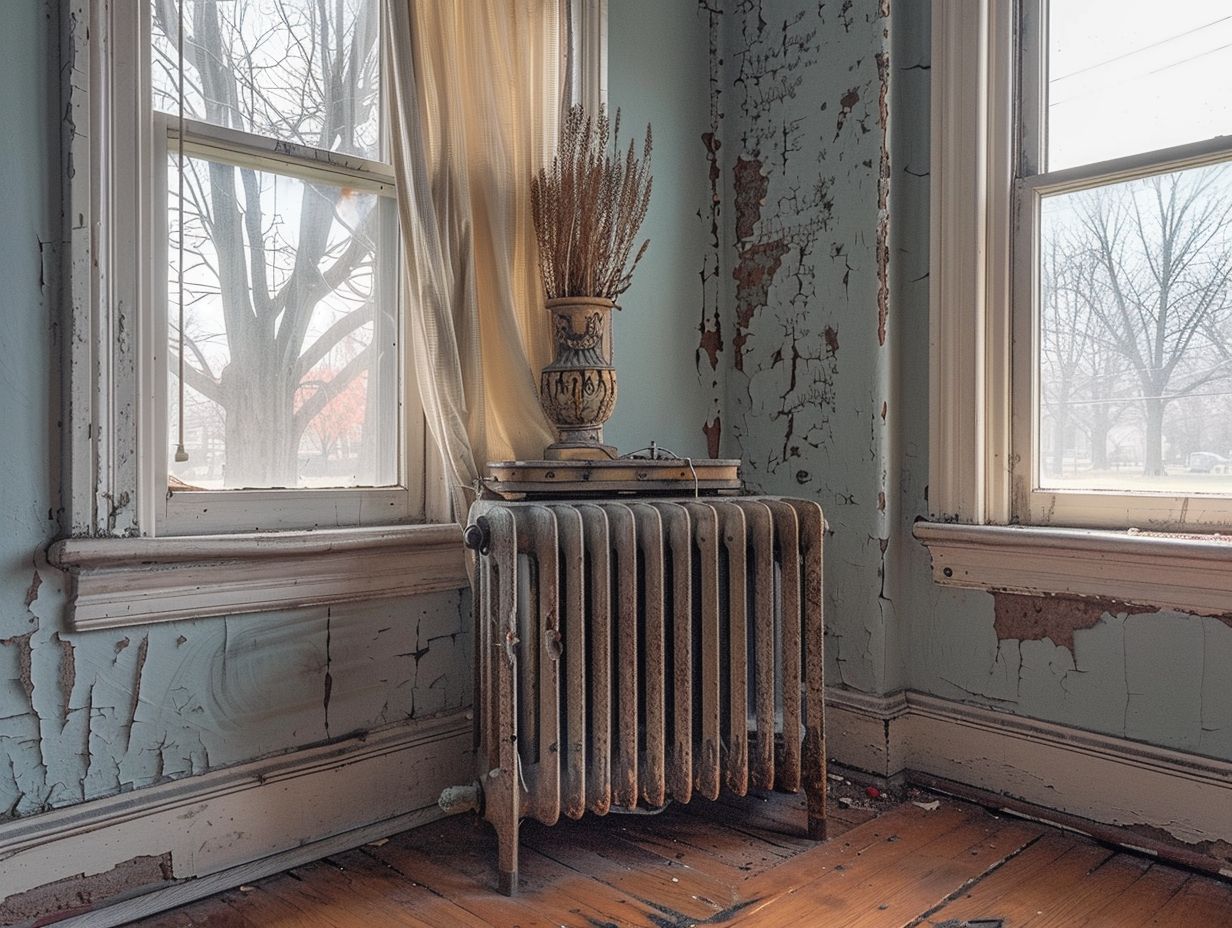
To avoid potential issues with traditional radiators, you should implement preventative measures and adhere to best practices. This involves inspecting towel rails, examining for pipe leaks, and ensuring proper insulation to uphold heat efficiency.
It is crucial to regularly inspect towel rails for any signs of corrosion or loose fittings to prevent leaks and potential water damage. Checking the pipes for leaks or rust build-up can help in early issue detection to prevent escalation.
Proper insulation not only maintains heat efficiency but also reduces energy consumption. By carrying out these routine checks and interventions, you can extend the lifespan of your heating system and avoid expensive repairs in the future.
When to Call a Professional for Maintenance?
In certain scenarios, professional intervention may be necessary for traditional radiators, despite the benefits of DIY maintenance. Complex issues such as central heating problems, significant sludge buildup, or intricate cleaning processes are best addressed by skilled technicians.
Signs of Serious Issues
Recognising the signs of serious issues in traditional radiators is crucial for prompt maintenance and preventing system failures. You should watch out for irregular heating patterns, strange noises, or cold spots indicating potential airflow or circulation problems that require immediate attention.
Inconsistent heating in a radiator could be a result of trapped air within the system, preventing hot water from circulating effectively. Unusual sounds, such as banging or gurgling, may point towards a build-up of limescale or debris in the pipes. Cold areas on a radiator might suggest a blockage or radiator imbalance.
To address these issues, bleeding the radiators to release trapped air, flushing the system to remove impurities, or rebalancing the radiators’ water flow distribution are recommended actions for maintaining optimal radiator performance and efficiency.
Frequently Asked Questions
What Maintenance Do Traditional Radiators Require?
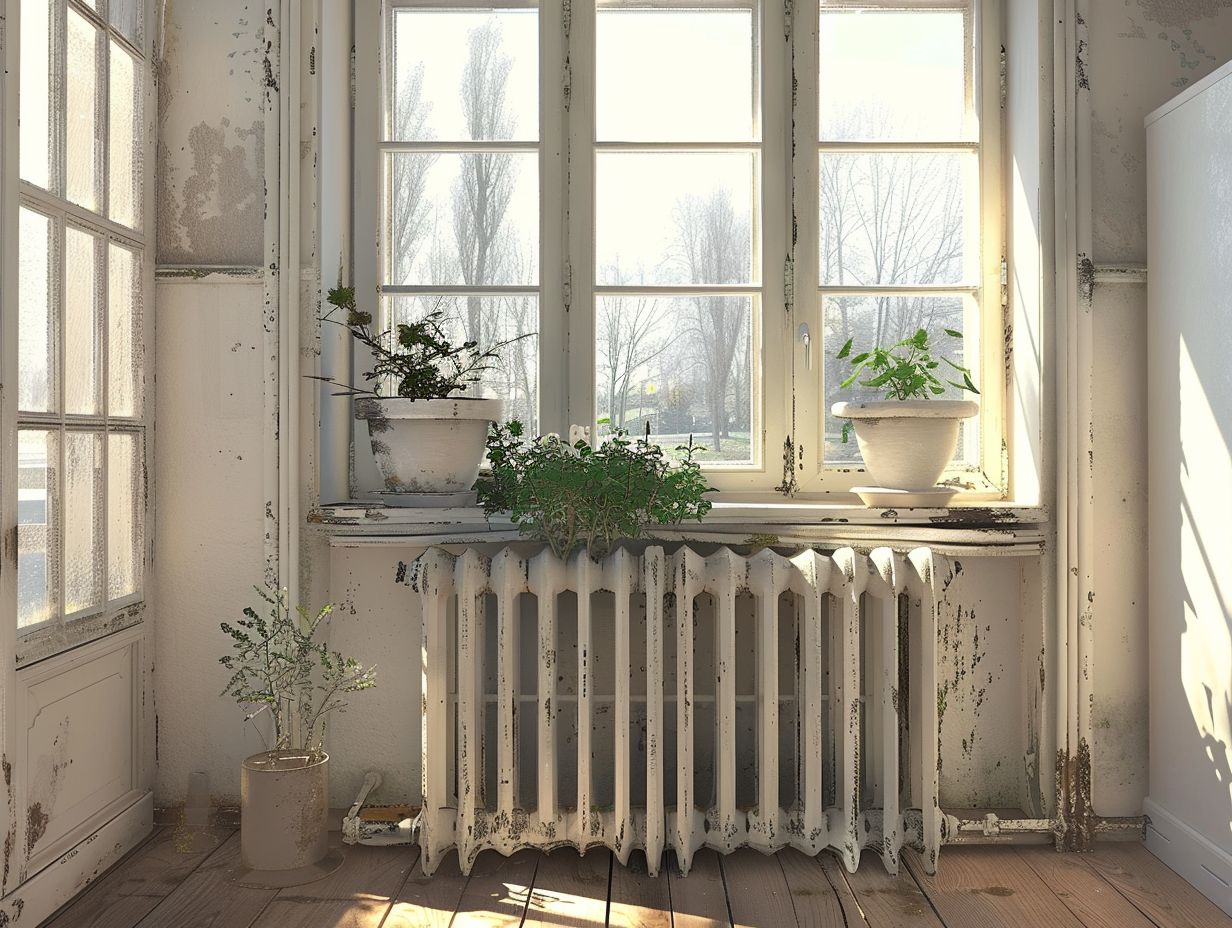
Traditional radiators typically require minimal maintenance, but there are a few key tasks you should do to keep them running efficiently.
Do I Need to Bleed My Traditional Radiators?
Yes, it is recommended to bleed your traditional radiators at least once a year. This removes any air that may have become trapped in the system and allows for better heat distribution.
How Often Should I Check My Radiator Pressure?
You should check your radiator pressure every 1-2 months to ensure it is at the correct level. This will prevent any potential damage to the system and ensure it is running efficiently.
Can I Clean My Radiators Myself?
Yes, you can clean your radiators yourself. You can use a soft cloth and warm soapy water to wipe down the exterior of the radiator to remove any dust or grime. However, it is important to avoid using any abrasive or harsh chemicals, as this could damage the finish of the radiator.
Should I Turn Off My Radiators in the Summer?
It is not necessary to turn off your radiators in the summer. However, you can turn off the central heating system to save on energy costs. Make sure to turn off the valves and bleed any excess air from the radiators before turning the system back on in the autumn.
How Do I Know If My Radiator Needs to Be Replaced?
If your radiator is not producing enough heat or is constantly leaking, it may be time to consider replacing it. Additionally, if your radiator is over 15-20 years old, it may be less efficient and cost-effective to keep repairing it rather than replacing it with a newer, more energy-efficient model.

